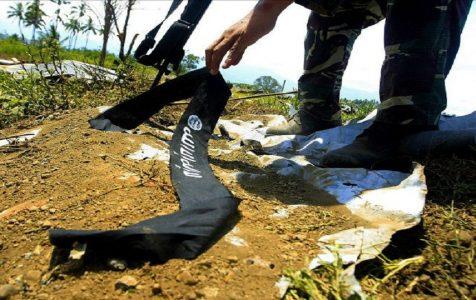
Muslim leader: Islamic State militants are leaving the Middle East for the Philippines
Islamic State (ISIS/ISIL)-linked foreign fighters from Indonesia, Malaysia, and other predominantly Muslim countries are traveling to Christian-majority Philippines to join the terrorist group’s Southeast Asia wing.
Islamic State (ISIS/ISIL)-linked foreign fighters from Indonesia, Malaysia, and other predominantly Muslim countries are traveling to Christian-majority Philippines to join the terrorist group’s Southeast Asia wing.
The Middle East, home to the original ISIS “caliphate,” has become inhospitable for the group following the liberation of Raqqa, Syria, and Mosul, Iraq, at the hands of U.S.-backed troops and local forces.
“Based on our own intelligence information, foreign fighters who were displaced from the Middle East continued to enter into our porous borders and may be planning to take two southern cities — Iligan and Cotabato,” Ebrahim Murad, the chief of the Moro Islamic Liberation Front (MILF), told Reuters.
Murad’s Muslim organization is a separatist group that helped the Filipino government fight against ISIS-affiliated fighters in the region after reaching a peace pact with Manila in exchange for autonomy that Philippine President Rodrigo Duterte’s administration implemented.
MILF leader Murad revealed that ISIS-linked terrorists from the country with the world’s largest Muslim population, Indonesia, as well as Malaysia and the Middle East, have already entered the Philippines.
Murad said those foreign fighters are already recruiting potential jihadists from remote Muslim communities in the Philippines.
“These extremists are going into madrasas [Islamic religious schools], teaching young Muslims their own version of the Koran, and some enter local universities to influence students, planting the seeds of hatred and violence,” he told Reuters.
“Such a scenario would be a major headache for the military, which is fighting on multiple fronts on the southern island of Mindanao to defeat home-grown Islamic State loyalists, bandits, and communist insurgents. Mindanao is under martial law,” concedes the news outlets.
Echoing U.S. Pacific Command (PACOM) — charged with American military activity in and around the Philippines — President Duterte’s military has acknowledged that the remnants of ISIS in his country are trying to regroup.
Consistent with warnings voiced by Duterte, Murad argues that if Filipino lawmakers refuse to approve legislation to grant greater autonomy to the Muslim administrations southern Philippines, jihadist groups like ISIS could make a comeback.
President Duterte has joined MILF in pushing the Philippine Congress to adopt the law, officially known as Bangsamoro Basic Law (BBL).
In the Christian-majority island nation of the Philippines, U.S.-assisted local forces dealt ISIS a significant blow last year, but the top American commander in the region recently warned that ISIS remains a threat in the Asia-Pacific region.
“More than 1,100 people were killed last year when pro-Islamic State militants attacked and held the Philippine city of Marawi for five months, leading to massive destruction across the scenic lakeside town,” notes Reuters
U.S. Adm. Harry Harris, the PACOM commander, told American lawmakers this month:
USPACOM remains concerned about the potential for ISIS ideology to inspire terrorism in the Indo-Pacific, but cautiously notes that the number of successful attacks dropped significantly during the past year.
The decline could be the result of an increased CT [counterterrorism] focus by governments across the region, as well as more effective efforts by host nation intelligence and security services – Indonesia, Malaysia and Bangladesh are among the places where authorities have successfully disrupted plots.
The decline might also be due to the diminished stature of ISIS and its ideology following losses in Iraq and Syria. However, the region is still fertile for radicals and extremists looking to affiliate with the ISIS brand.
In October 2017, the Philippine military ended its combat mission in the embattled Marawi City after killing the leaders of the nation’s two ISIS affiliates – Isnilon Hapilon of Abu Sayyaf and Omar Maute of the Maute group – and allegedly dismantling the remnants of a jihadi rebel alliance.
However, the next month, Philippine authorities revealed ISIS had appointed a Malaysian bomb-making expert – Amin Baco – with ties to various jihadist groups as its new “emir” in Southeast Asia.
Source: Breitbart





